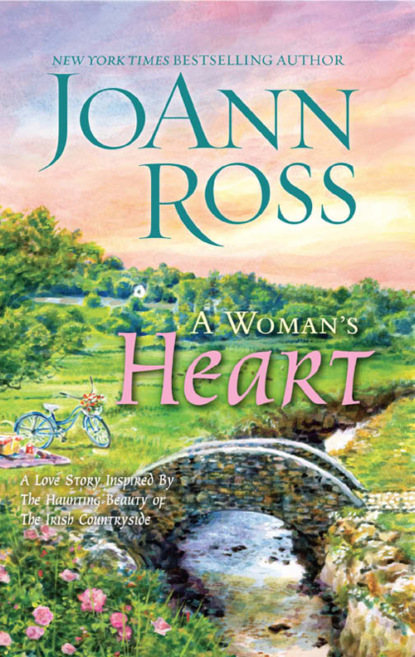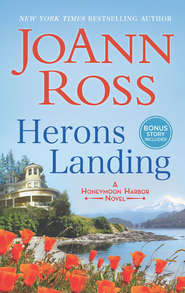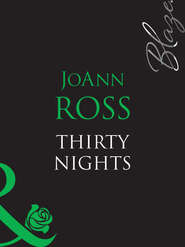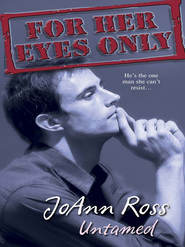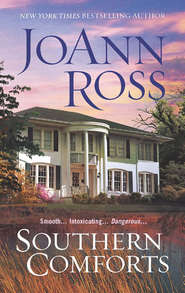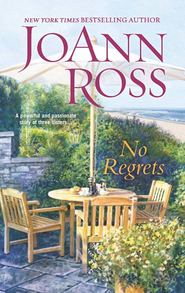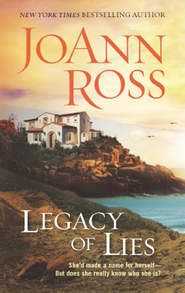По всем вопросам обращайтесь на: info@litportal.ru
(©) 2003-2025.
✖
A Woman's Heart
Автор
Год написания книги
2019
Настройки чтения
Размер шрифта
Высота строк
Поля
But then again, Nora reminded herself, she hadn’t lost her mother at the tender age of nine as Mary had. She’d been all of eighteen and had had Conor to offer comfort and love during that sad time.
As she rapped on the closed bedroom door, Nora thought that Sheila Monohan had definitely been right about one thing. Raising her mother’s three children along with her own—not to mention worrying about her father, who was little more than an overgrown child himself—was far from easy.
Nora lifted her eyes upward, which, unfortunately made her notice the new brown water stain on the ceiling. She really was going to have to get the roof rethatched.
“It would certainly be nice, Mam,” she murmured, “if you could give me a little help with this one.”
Chapter Four
Smoke and Strong Whiskey
As Quinn drove past the butcher shop, the rows of meat and dressed chickens displayed in the storefront window reminded him of how many hours it had been since he’d eaten. Spotting the hanging sign across the square advertising The Irish Rose pub, he decided to stop.
“Some food and a couple cups of coffee should stave off jet lag.” And ease the headache that had begun to throb while he’d been driving around in circles.
This would also give him an opportunity to ask directions to the Joyce farm. He’d been assured by the rental agent who handled the transaction that the farm was on the road directly out of Castlelough. However, having already discovered the vagaries of the Irish roadway system, Quinn feared the agent’s assurances would prove to be overly optimistic.
He allowed himself a smile when he read the words burned into the piece of wood nailed to the pub door: Here when we’re open. Gone when we’re closed.
The interior of The Irish Rose could have been lifted directly from the set of The Quiet Man. Quinn suspected it had looked much the same when the town of Castlelough had been founded more than five hundred years earlier.
The dark-paneled walls had shelves filled with bottles of whiskey gleaming like a pirate’s bounty in the light from the brass-hooded lamps. Behind the bar, a mirror advertised Guinness in fancy gold script.
A turf fire burned in the large open hearth at one end of the room, warding off the chill; a cloud of smoke hung in the air. Wooden tables had been crowded onto the hand-pegged floor and heavy benches resembling church pews had been placed along the wall. The only anachronism was the television, bolted above the bar and currently tuned to a hurling match.
When his eyes adjusted to the dimness, Quinn could see three men seated at the bar, more men scattered around at the tables smoking pipes and reading newspapers, and a pair of teenage boys playing darts. A man and woman were eating a late lunch of pub grub while a pair of carrot-haired toddlers Quinn took for twins happily munched on crunchy chips.
All eyes immediately turned toward him as he crossed the floor and sat down on a stool in front of the scarred wooden bar.
“Lovely day,” a small, spry leprechaun-like man remarked.
“A bit chilly,” Quinn replied. Only yesterday he’d been basking in the California sun.
“Aye.” The man nodded. “Though myself, I don’t care for it when it’s warm. Then you’ve got nothing to complain about, after all. It’s no good for the talk…” His words trailed off. Abruptly he said, “You’d be Quinn Gallagher.”
“That was either one helluva guess or you’re psychic.”
“Now, there have been some who’ve accused me of that over the years, but it’s not how I knew you.” A smile brightened the apple-cheeked face; still-young blue eyes twinkled merrily. “I recognized you from the photograph on the back of your books. Hasn’t my youngest son, John, read them all? He especially liked the one about the banshee.”
“That was one of my favorites, as well.” It was his first published novel, written during a blaze of inspiration the likes of which Quinn had never experienced since. His muse was a fickle mistress.
“Brady’s seen a banshee,” the second man, who appeared to be nearing the century mark, revealed. His bulbous red nose suggested he’d spent several of those many years indulging a fondness for the bottle.
“Brady?” It was undoubtedly a common enough name, Quinn told himself.
“Brady Joyce, at your service,” the first man said. “And isn’t this the divil’s own luck, you stopping by The Rose on your way out to the farm?”
“It’s quite a coincidence.”
“Not so much of one,” the second man alleged. “The Rose is the only pub this side of the river. It’s also the first one on the road into town, which made it likely it’d be the one you chose to stop at.
“And whenever The Irish Rose is open—” he took a long drink of the dark beer in front of him and wiped the creamy tracing of foam off his top lip with the back of his hand “—isn’t it sure you’ll find Brady Joyce sitting right on that very stool, spinning his tales. He’s the finest seanachie in the county.”
“Oh, I’m not nearly as fine a storyteller as Mr. Gallagher,” Brady said with what Quinn suspected was more than a little false modesty.
“That may be the case, indeed, but the banshee story is a grand fearful tale,” the old man countered. “It never fails to give me gooseflesh.” He cast Quinn an appraising look. “You’d be one of those movie people.”
“I am.”
“Brady was telling me about you staying at the farm. We were thinking you might want to make a movie outta one of his tales.”
“Oh, it was Fergus here who was thinking that,” Brady said quickly. A bit too quickly, Quinn thought. “I told him it was foolishness.”
“Getting a movie made is a real long shot,” Quinn said carefully, afraid of offending his host by suggesting he might not consider Brady Joyce’s stories worthy of consideration.
The rest of the cast and crew was already booked into every spare room in the village; if Joyce decided to welsh on the rental agreement, Quinn would have no choice but to take Laura up on her offer. A situation he was determined to avoid.
“And isn’t that just what I was telling Fergus?” Brady nodded. “A long shot.”
“And wouldn’t one consider getting a movie made about a lake creature in a small Irish town few have ever heard of a long shot?” the man named Fergus suggested slyly.
“Good point… So, you’ve actually seen a banshee?” Quinn asked Joyce. Although he’d enjoyed writing the story of the keening fairy woman, he considered such a thing on a par with the Easter Bunny, Santa Claus and the tooth fairy.
“Aye, that I have,” Brady agreed cheerfully. “I’ve also seen the lovely Lady who brings all you movie people to Castlelough. But those are tales for another time. First we need to get you something to drink.
“Publican, a pint for my guest,” he called out robustly to the man who was drying glasses not two feet away. “I’ll stand a round for the room, as well. And bottles of orange for the boys.
“And while Brendan pulls your pint, you can tell us all about yourself,” Brady invited, turning back to Quinn.
“There’s not that much to tell.” Never one to talk about his past, Quinn was definitely not eager to discuss it here, among strangers.
“Of course there is. As a storyteller yourself, you should know there’s no one else like you. No story like your own. And there’s always the fact that,” Brady tacked on impishly, “if you don’t tell us, we’ll have no choice but to make things up.”
Before Quinn could respond to that, a large man at the end of the bar abruptly stood and announced, “I’ll not be drinking to the likes of him.”
The room suddenly went deathly still. Glasses lowered to wooden tables.
“Now, Cadel,” Brady said cajolingly, “is that any way to be talking to a visitor?”
“Did I ask him to come here?” His hands were curled at his sides. The meaty fists and the murder in his dark eyes reminded Quinn of a heavyweight boxer. “I don’t recall inviting any focking Yanks to Castlelough,” the man growled. He shot a lethal glare Quinn’s way. “Why don’t you bloody Americans stay home where you belong?”
Quinn decided the question was a rhetorical one, designed to start a fight. And although he’d gotten into his share of bar brawls in his younger days, he had no intention of allowing himself to be baited now.
When Quinn didn’t answer, his red-faced challenger turned back to Brady. “And aren’t you’re just as bad, Brady Joyce, letting this focking rich tourist into your house for the price of a few pounds? The bloody foreigners are overrunning this country, flashing their Yank money, buying up our land, destroying tradition. Ireland’s a beautiful woman. And some people—” his hard-as-stone eyes raked both the old man and Quinn “—are focking pimps.”
That said, he tossed back the rest of his whiskey and strode from the pub, slamming the heavy oak door behind him. A thick silence lingered in his wake.
“Now don’t be paying any mind to the likes of Cadel O’Sullivan,” Brady advised Quinn with unfailing cheer. “He’s been in a sour mood for most of his thirty-three years.”





